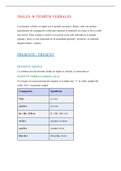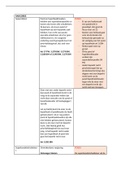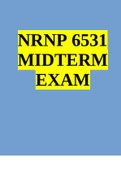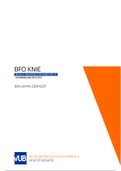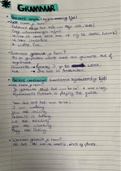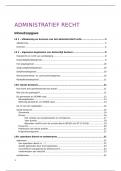EVOLUTION OF MANAGEMENT
1. Traditional viewpoint: bureaucratic, scientiifc, administrative
o Close control, clear hierarchy, procedures&rules
o Focus on production and proift
o Measuring everything (scientiifci, so company sees where, what or when to change.
2. Behavioural viewpoint – Looking at employees/guests and behaviour of them.
3. Systems viewpoint – During war, every man went to the ifeld women, children and
old people worked in factories. System made simple so everybody could do it. SOP’s
4. Contingency viewpoint – Hippies, happy period, increasing economy. Also uses the
other viewpoints.
5. Quality viewpoint – All about quality, TQM.
Q: Why did Management change?
Economy, society, politics, innovation, globalization.
Q: Management is?
Dynamic, WHY?
Q: What does manager do?
Planning: Deifning goals, establishing strategies and coordinate activities
Organizing: Determining what activities need to be done, who is responsible and how
activities should be done
Leading: Directing and motivating all involved parties and resolving conlict.
Controlling: Monitoring activities to make sure that they are accomplished as planned.
Q: Management competencies?
1. Communication
2. Administrative competencies
3. Multi cultural competencies
4. Self Management competencies
5. Technical Skills competencies
6. Soft skills competencies (PBL 1i
Management tools
Balanced scorecard
An overview of chosen KPI’s which look at companies performance
Area’s:
1. Financial
2. Customer/ Guest
, 3. Internal/ Processes
4. People/ innovation/ growth assets.
SWOT
Understanding your internal present situation (S&Wi and external future potential developments
(O&Ti.
Pestel
Politics: corruption, bureaucracy, freedom of the Press, Government type, restriction&legislation
Economics: Taxes, interest rates, GDP economic growth
Social: Health, Career attudes, Core ethics, Age distribution, Educational infrastructure
Technological: Degree of automation, emerging technologies
Legal: Employment law, health&safety law
Environmental: Weather, climate, Infrastructure, Geography.
Budget
Predicted quantitative outlook for the period ahead.
For who? Shareholders, owners, managers
Key ingredients: Historical data, Predictions based on current available information
DELEGATION CHECKLIST
1. Setng clear goals and standards
2. Test understanding
3. Create involvement (motivationi
4. Expect completion
5. Provide training if required
6. Create opportunities for clariifcation and feedback
Leadership Theories
1. Traits Theories:
What makes a person a good leader ?
2. Behavioural Theories:
What does a good leader do ?
3. Contingency Theories:
How does the situation inluence good leadership?
4. Power & Inluence Theories (French and Raveni
What is the source of the leaders power ?
Management :
The organizing and coordination of activities of a business in order to achieve deifned objectives.

